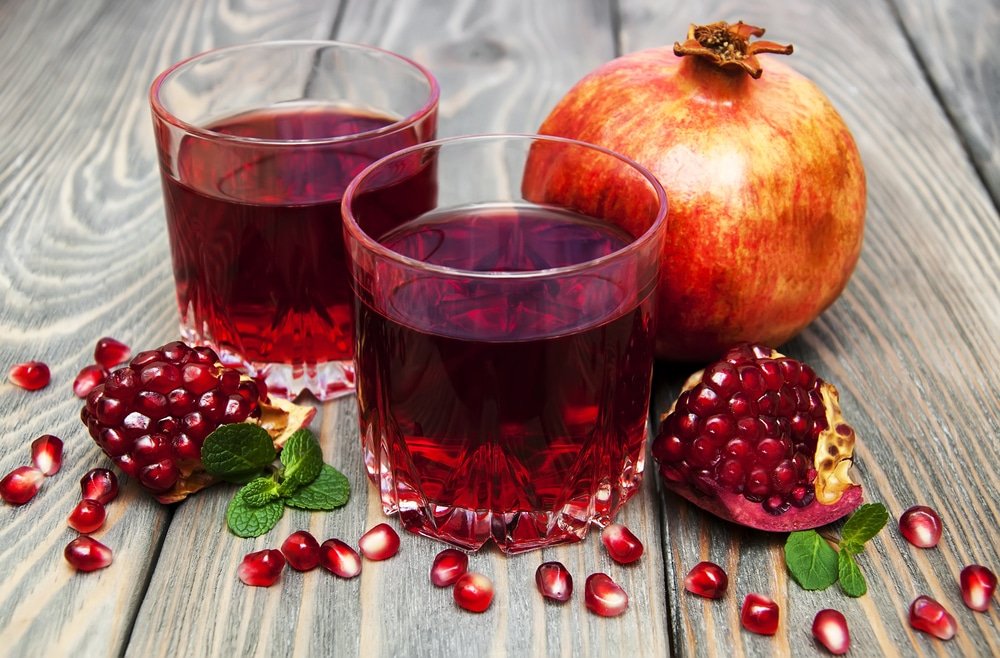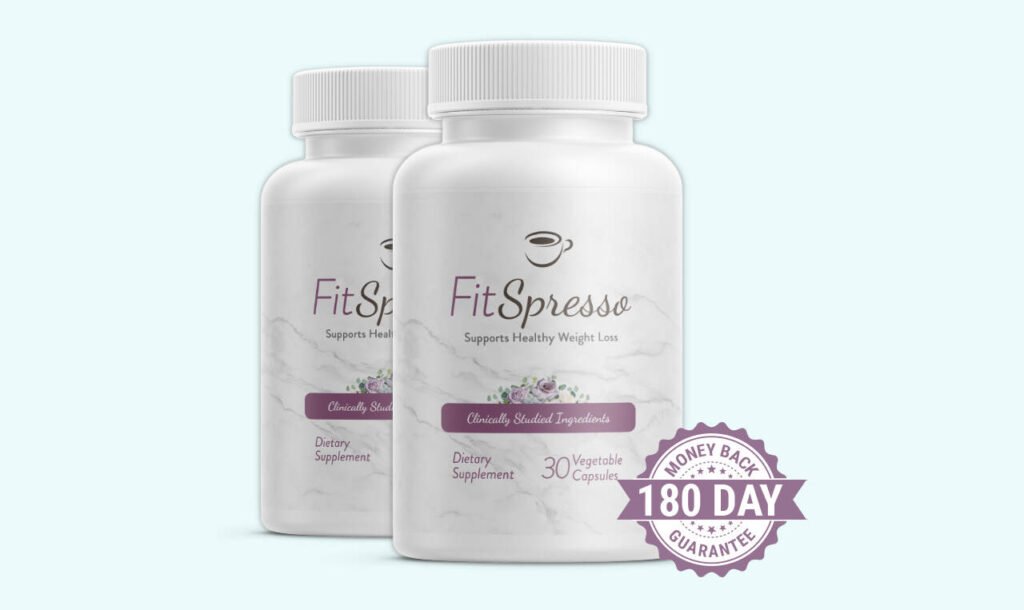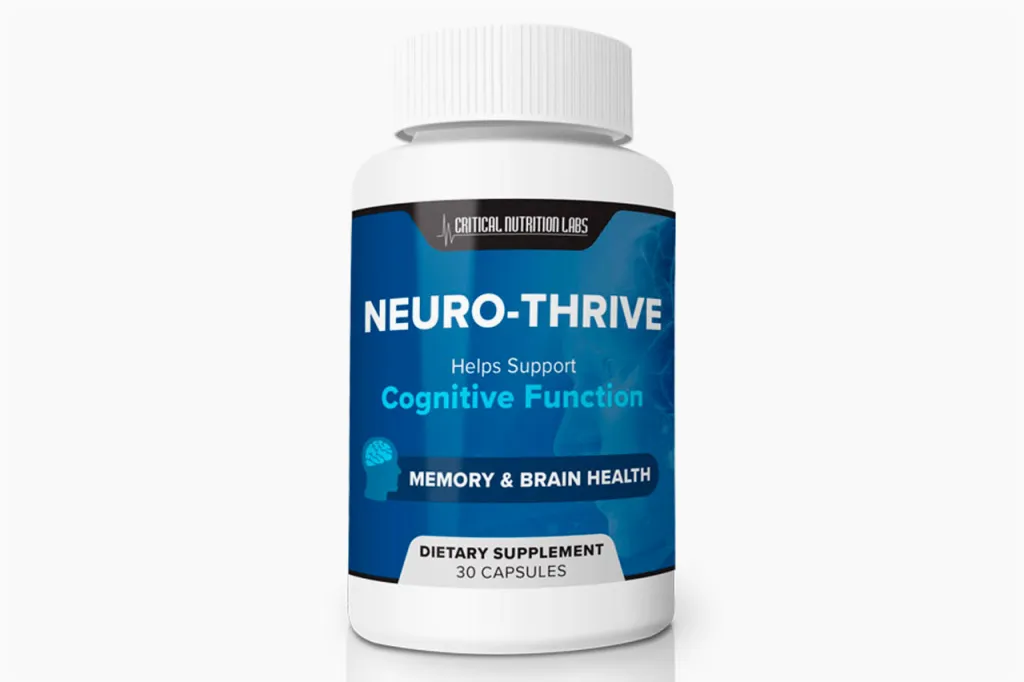Pomegranate, Punica granatum, is a fruit that contains natural compounds called Punicalagins and Punicic Acid. Pomegranate is about 5-12 cm (2-5 inches) in diameter, about the size of a small to large orange. It is red, round and resembles the shape of an apple with a flower-shaped stem.
The skin and seeds of pomegranate are edible. The skin is thick and the hundreds of seeds called arils are contained within the fruit. Pomegranate is native to Iran. Pomegranate including pomegranate peel has been used for medicinal purposes for thousands of years.
This article will discuss what the science says about pomegranate and health. But firstly, let’s look at the nutritional profile of pomegranate.
Nutrition Facts of Pomegranate
Pomegranate juice is a polyphenol-rich (tannins and anthocyanins) fruit juice with high antioxidant capacity.
The following are key nutrients contained within pomegranate (1):
- Vitamin C (17% Daily Values)
- Vitamin E (3% DV)
- Vitamin K (21% DV)
- Thiamine (4% DV)
- Riboflavin (3% DV)
- Vitamin B6 (4% DV)
- Folate (10% DV)
- Pantothenic acid (4% DV)
- Potassium (7% DV)
- Manganese (3% DV)
- Magnesium (3% DV)
- Iron (2% DV)
- Zinc (2% DV)
Health Benefits of Pomegranate

The following are the top 8 health benefits of pomegranate.
1. Promotes Bone Health
Osteoporosis is a chronic disease characterized by an impairment in bone remodelling leading to bone loss. Studies in mice with no ovaries have demonstrated that pomegranate seed oil consumption (5% of the diet) improved bone mineral density.
The studies showed that pomegranate stopped inflammation while stimulating anti-inflammatory factors(2,3,4). These results show promising signs for the treatment of osteoporosis.
2. Improves Brain Function
Although there are no proven ways to delay the onset or slow progression of Alzheimer’s disease (AD), some studies are showing that food can influence its development.
Pomegranates contain very high levels of antioxidant polyphenolic substances as compared to other fruits and vegetables. Polyphenols have been shown to be protective in brain health (5). Pomegranate seed extract increased memory and muscular coordination in rats, which was related to its antioxidative and free radical scavenging actions (6).
Twenty-eight older aged adults with age-related memory complaints participated in a 4-week trial. Participants were randomly assigned either 227 grams (8 ounces) of pomegranate daily or a placebo. After 4 weeks, only the pomegranate group showed a significant improvement in memory function and functional brain activity (7).
3. Decreases Bad Fats in the Blood
Bad fats can increase the risk of heart disease. Studies undertaken to assess the potential of pomegranate on lipid profiles of people with type 2 diabetes with high amounts of “bad” fats (cholesterol and high triglycerides) showed positive results.
After consumption of concentrated pomegranate juice for 8 weeks, significant reductions were seen in total cholesterol, low-density lipoprotein-cholesterol (LDL-c), LDL-c/high-density lipoprotein-cholesterol (HDL-c), and total cholesterol/HDL-c. However, there were no significant changes in serum triglyceride and HDL-c concentrations. It could reduce the risk of developing heart disease in hyperlipidemic patients(8,9).
Another good quality study examined the effect of 51 individuals taking pomegranate with high levels of bad fats. After 4 weeks, triglyceride (TAG) and the TAG to HDL-C ratio significantly decreased as compared with baseline values.
Serum cholesterol, LDL cholesterol and glucose concentrations and body composition variables remained unchanged. Pomegranate had favourable effects on lipid profiles including triglycerides and triglyceride to high-density lipoprotein-cholesterol ratio (10).
Including pomegranate regularly as part of a balanced diet may be beneficial.
4. Decreases Blood Pressure
High blood pressure or hypertension is the most common disease found in individuals. Blood pressure is managed with diet, lifestyle and medication depending on the individual. A review of the literature revealed that pomegranate may lower blood pressure regardless of the duration. On average, systolic blood pressure reduced by 4.96mmHg and diastolic blood pressure reduced by 2.01mmHg (11).
Another study followed 10 individuals taking pomegranate for 3 years. Systolic blood pressure reduced by 12% after 1 year of the treatment. Interestingly, blood pressure was not further reduced at 3 years of taking pomegranate (12). Pomegranate could be considered as an adjunct therapy to dietary and medical treatments for hypertension.
5. Strengthens the Immune System
The immune system is a network of cells, tissues, and organs that work together to protect the body against harmful microorganisms such as bacteria, parasites, and fungi that can cause infections.
Pomegranate in combination with copper ions was seen to exhibit moderate antimicrobial effects (13). Pomegranate showed antifungal properties. The results showed the potential use of it as cheap and convenient adjuvants to pharmaceutical antifungal products (14).
Another study of 60 people with a fungal infection in their mouth (denture stomatitis) aimed to understand the effectiveness of it as a treatment. Pomegranate may be used as a topical antifungal agent for the treatment of candidosis associated with denture stomatitis (15).
6. Anti-inflammatory Properties
Inflammation can cause serious health conditions. Small matter suspended in Earth’s atmosphere with a diameter of <10 μM can be harmful to health. They are harmful because they stimulate the production of reactive oxygen species and inflammatory processes.
The research suggests that pomegranate may be useful in minimizing inflammatory reactions due to particulate matter (16). Another study in rats showed that when combined with exercise was more effective than pomegranate alone to decrease inflammation and oxidative stress. (17).
These studies show promising results in the area of anti-inflammatory properties.
7. Cancer Prevention and Management
Cancer is a condition of excessive and abnormal cell growth. The cell growth can affect body organs as the cells spread throughout the body.
It’s extracts have been used as anticancer agents and they contain a large number of potentially bioactive substances. Punicic acid is an omega-5 long chain polyunsaturated fatty acid found in pomegranate seed oil. Pomegranate has shown to stop the spread of cancer in test tube and animal studies (18).
It has been demonstrated to exert antitumor effects on various types of cancer cells in experimental models of lung, prostate and skin cancer (19). Pomegranate reduced the human prostate cancer cell growth in a test tube study possibly by killing cancer cells apoptosis (19).
More recently, it has been found to be anti-carcinogenic in the colon (20). A study investigated the potential ability of punicic acid (pomegranate) and the effect of growth on both estrogen-insensitive breast cancer and estrogen-sensitive cells.
Cancer cell growth was stopped in 92% and 96% of cases for estrogen-insensitive and estrogen-sensitive cells respectively, compared to untreated cells. Furthermore, punicic acid (pomegranate) induced apoptosis (cell death) in the estrogen-insensitive cells and estrogen-sensitive cells by 86% and 91%, respectively compared to untreated control cells.
These results suggest that pomegranate has anti-cancer properties in breast cancer (21). Pomegranate is showing promising signs in the area of cancer prevention and treatment.
8. Arthritis
Arthritis is disease causing painful inflammation and stiffness of the joints. A study highlighted that it improved symptoms within 2 weeks and further joint damage from arthritis was minimized.
Pomegranate was helpful through its anti-inflammatory properties (22).
Conclusion
Pomegranate has been used for thousands of years to improve health. In recent decades, science has started to explore the scientific side of it and its potential health benefits. Early studies show promising results. More robust human studies will help to understand and clarify the potential of pomegranate in managing health conditions.
In the meantime, feel free to enjoy pomegranate as a fruit as part of a balanced diet and benefit from the high nutrient and polyphenol content.
ABOUT THE AUTHOR
 Natalie Thompson, APD is a non-dieting Accredited Practicing Dietitian passionate about inspiring positive changes in eating and lifestyle behaviors to help improve health while nurturing relationships with food and body.
Natalie Thompson, APD is a non-dieting Accredited Practicing Dietitian passionate about inspiring positive changes in eating and lifestyle behaviors to help improve health while nurturing relationships with food and body.
After graduating with a Masters of Nutrition and Dietetics and Bachelor of Human Nutrition, Natalie Thompson worked in clinical dietetics in the community and in residential aged care with a non-government organization servicing the older adult and disabled population and the Department of Veterans’ Affairs. She also has her my own private practice.
Natalie Thompson has a Bachelor of Human Nutrition from University of Newcastle with a Master of Nutrition and Dietetics from Griffith University. You can connect with Natalie on LinkedIn

